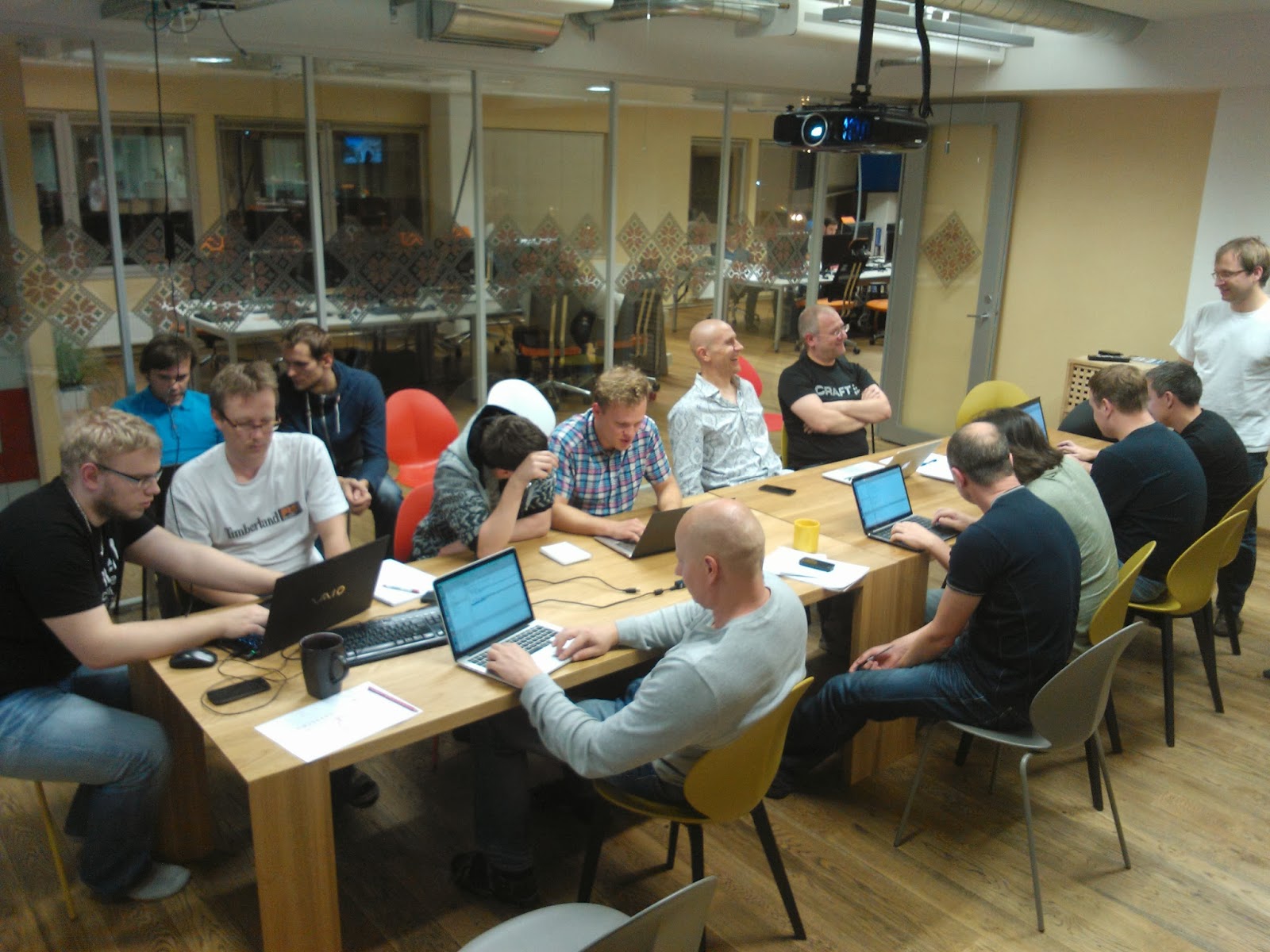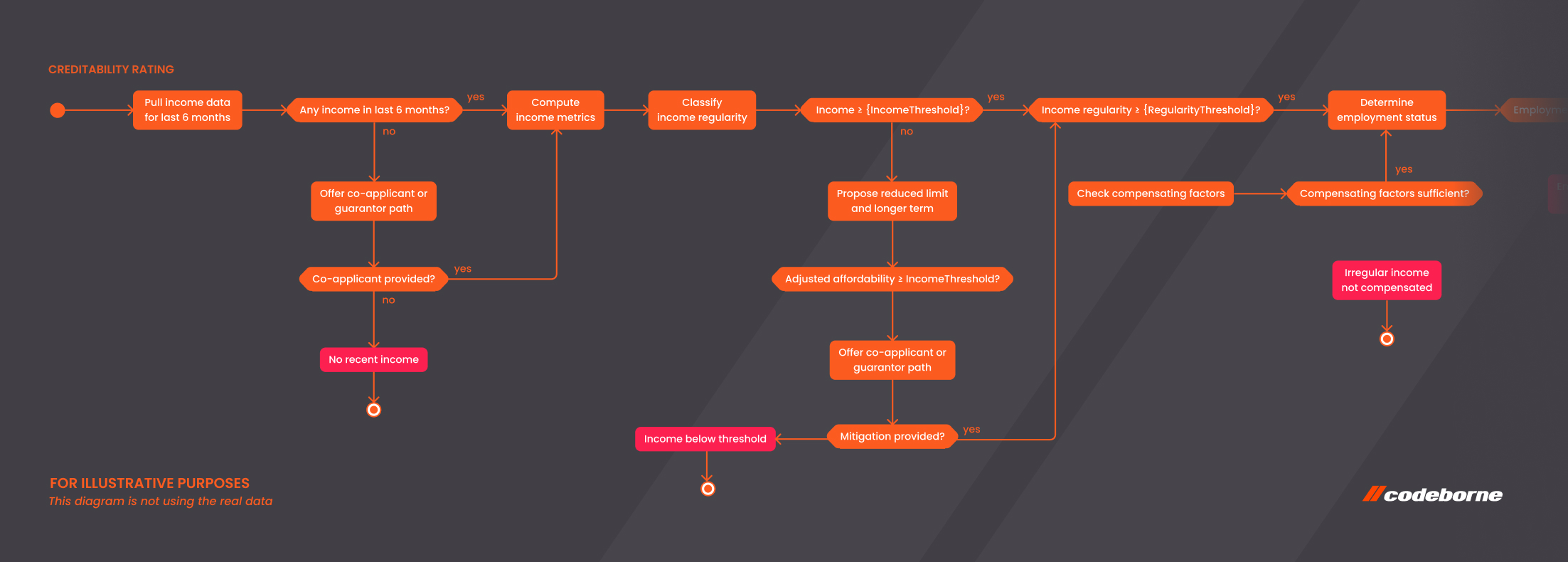
OCRing in Style
Recently, during our weekly Technology eXchangE (TeX) meeting, Erik organized a short Code Kata event. The problem we had to solve was ”OCR”. We had to parse input similar to this:
_ _ _ _ _ _
| | ||_ |_ |_| _| _| |
| | ||_||_| _||_ |_ |
_ _ _ _ _ _ _ _
|_||_||_ ||_ _| || | |
|_| ||_| | _| _| ||_| |
_ _ _ _ _ _
|_ ||_| | _| _||_||_ |
|_| ||_| | _||_ | _| |
Of course we did it in our regular pair-programming TDD fashion.
I decided to use Ruby as a language of choice to have more fun and also teach it to my partner in crime! Here is the result we produced during that hour (with tests of course!):
# ocr_spec.rb
require File.expand_path("ocr", File.dirname( __FILE__ ))
describe Ocr do
context ".parse" do
it "parses 1" do
Ocr.parse(
"
|
|
").should == 1
end
it "parses 2" do
Ocr.parse(
" _
_|
|_
").should == 2
end
it "parses 3" do
Ocr.parse(
" _
_|
_|
").should == 3
end
it "parses 4" do
Ocr.parse(
"
|_|
|
").should == 4
end
it "parses 5" do
Ocr.parse(
" _
|_
_|
").should == 5
end
it "parses 6" do
Ocr.parse(
" _
|_
|_|
").should == 6
end
it "parses 7" do
Ocr.parse(
" _
|
|
").should == 7
end
it "parses 8" do
Ocr.parse(
" _
|_|
|_|
").should == 8
end
it "parses 9" do
Ocr.parse(
" _
|_|
_|
").should == 9
end
it "parses 0" do
Ocr.parse(
" _
| |
|_|
").should == 0
end
end
context ".parse_file" do
it "single line" do
Ocr.parse_file("test_file_single_line.txt").should == [111669227]
end
it "multiple line file" do
Ocr.parse_file("test_file_multi_line.txt").should == [111669227, 846753707]
end
end
end
# test_file_single_line.txt
_ _ _ _ _ _
| | ||_ |_ |_| _| _| |
| | ||_||_| _||_ |_ |
# test_file_multi_line.txt
_ _ _ _ _ _
| | ||_ |_ |_| _| _| |
| | ||_||_| _||_ |_ |
_ _ _ _ _ _ _ _
|_||_||_ ||_ _| || | |
|_| ||_| | _| _| ||_| |
# ocr.rb
class Ocr
MAPPINGS = [
" _ | ||_| ",
" | | ",
" _ _||_ ",
" _ _| _| ",
" |_| | ",
" _ |_ _| ",
" _ |_ |_| ",
" _ | | ",
" _ |_||_| ",
" _ |_| _| ",
]
def self.parse(input)
MAPPINGS.index input.split($/).join
end
def self.parse_file(file_name)
File.readlines(file_name)
.each_slice(4)
.map {|four_lines| four_lines
.map {|line| line
.chomp
.chars
.each_slice(3)
.to_a
}
.transpose
.map {|number_string| parse number_string.map(&:join)
.join($/) }.join.to_i }
end
end
The code above is definitely not production-ready! As you can see it is mostly one-liner. Good luck deciphering that! Here’s some reference material to help you out: Array#index, String#split, Array#join, IO.readlines, Enumerable#each_slice, Enumerable#map, String#chomp, String#chars, Enumerable#to_a, Array#transpose and String#to_i
Our recent stories
The Codeborne Christmas beer brewing diaries
It was a sunny day in September. Quite warm for that time of year. We were sitting with my colleague Tiit on the roof terrace in the Codeborne office as we do every now and then. I ask him for advice on occasion - after all, what are the more experienced colleagues good for otherwise?
“Backing up” a good product owner
One of the key players in most successful agile projects is a product owner, at least in Codeborne’s practice. Our practice stretches for more than 15 years, during which we have successfully delivered over 100 projects.
Unleashing the power - How Creos partnered with Codeborne to change Luxembourg's energy sector
Creos Luxembourg involved Codeborne in its journey to modernize Luxembourg’s energy sector


